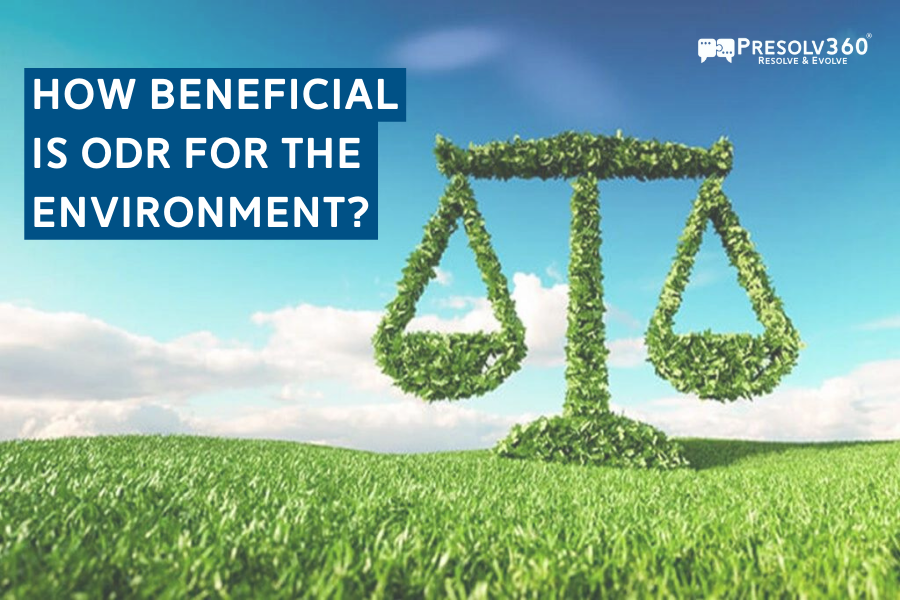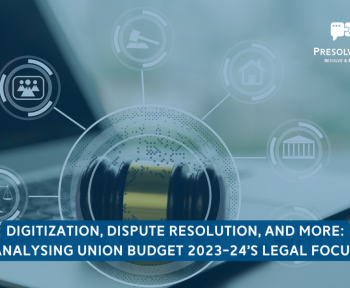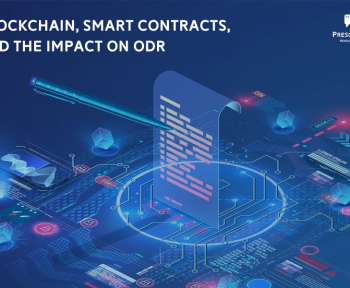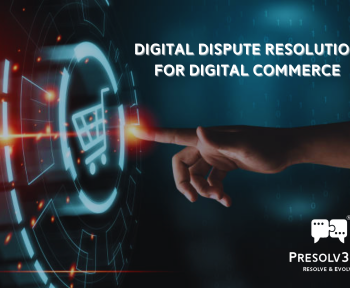Online Dispute Resolution (“ODR”) resolves disputes by arbitration, mediation, or negotiation using Information and Technology tools such as learning algorithms. The use of these tools aids the dispute resolution process and makes it hassle-free, quick, convenient, and environmentally friendly.
Using ICT tools in administering dispute resolution eliminates the extra costs and resources involved in traditional forms of dispute resolution. A study by the Campaign for Greener Arbitrations revealed that offsetting carbon emissions from one international arbitration requires ~20,000 trees. This staggering figure demonstrates the urgent need to adopt more sustainable practices.
Comparison of litigation and ODR in terms of their impact on the environment
ODR has become the need of the hour to cater to sustainable forms of dispute resolution. The COVID-19 pandemic catalysed the shift from offline to online modes of dispute resolution out of necessity. But greater ODR adoption can also positively impact environmental preservation in a few different ways.
Litigation, as opposed to ODR, is resource intensive. Travelling to the courtrooms is one of the major contributors to carbon footprints in the dispute resolution process. Taking flights, trains, or even local transport for every court hearing can be extremely tedious for any disputant. In addition, litigation also requires the printing and submission of case files which contributes to a burden on the environment. A study tried to determine the paper consumption of the Indian courts. It found that every year, the Supreme Court alone sees the submission of about 48 million papers. Also, the high courts witness the submission of 813 million papers, and the lower courts, 11 billion papers. Production of a single such paper requires wood from trees and 10 litres of water. This is unsustainable and has a big environmental cost.
India can save these crucial resources by switching to ODR, saving paper through soft copies of documents. Even if a small percentage of people refer their disputes to ODR, it will save critical resources, costs, and time.
Currently, the primary mode of conducting ODR is by video conferencing of all the parties involved. This eliminates the need for physical travel to courtrooms.
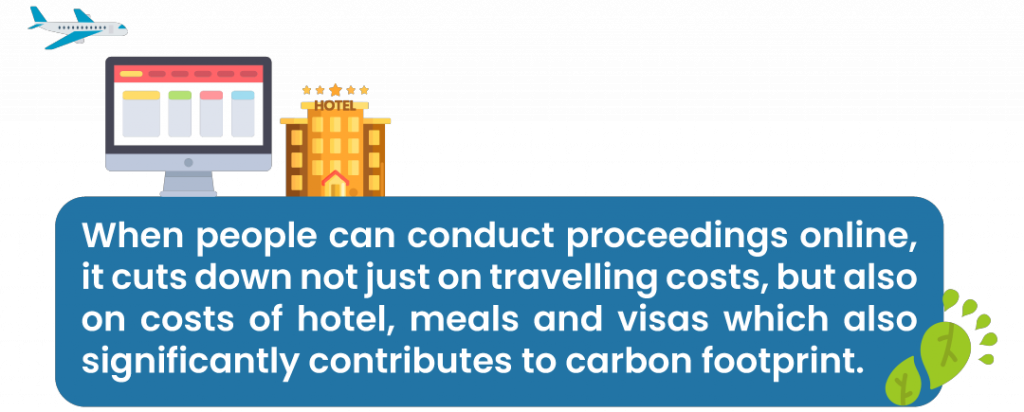
ODR speeds up dispute resolution and reduces resource consumption
As detailed above, ODR saves on time and costs associated with the dispute resolution process. The parties don’t need to travel to another city or state for a resolution proceeding for a couple of hours. Instead, using ICT tools, algorithms, and video conferencing, disputes need fewer hearings and use lesser resources. There may even be lesser human interference if the parties use algorithms to come to the outcome of a dispute.
Under a microscopic lens, ODR has the potential to significantly reduce the time and cost associated with traditional court proceedings. This is due to the efficient and streamlined nature of the process. It eliminates many of the administrative and political delays that often occur in traditional court proceedings.
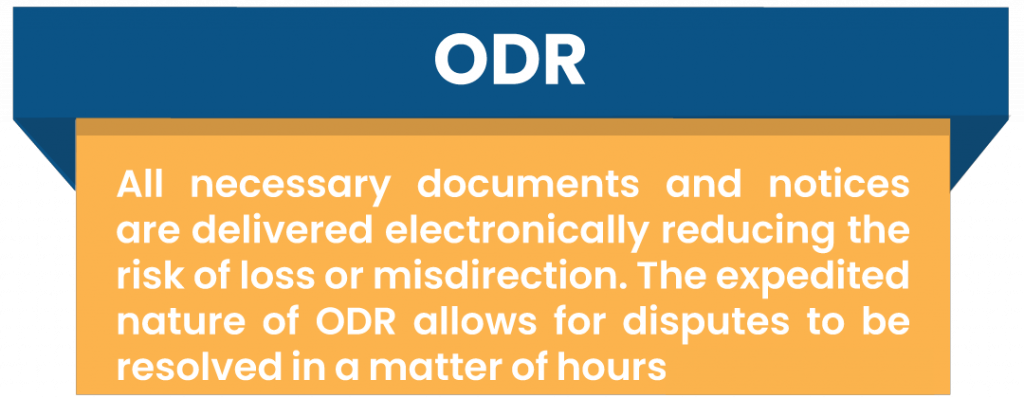
The flexibility provided by ODR
Considering the present uncertainties, the pliability of ODR makes it so much more attractive as compared to other dispute resolution alternatives. ODR can easily juxtapose courts with various bureaucratic loops to jump through, without needing a one-size-fits-all approach and easy customization on a case-by-case basis.
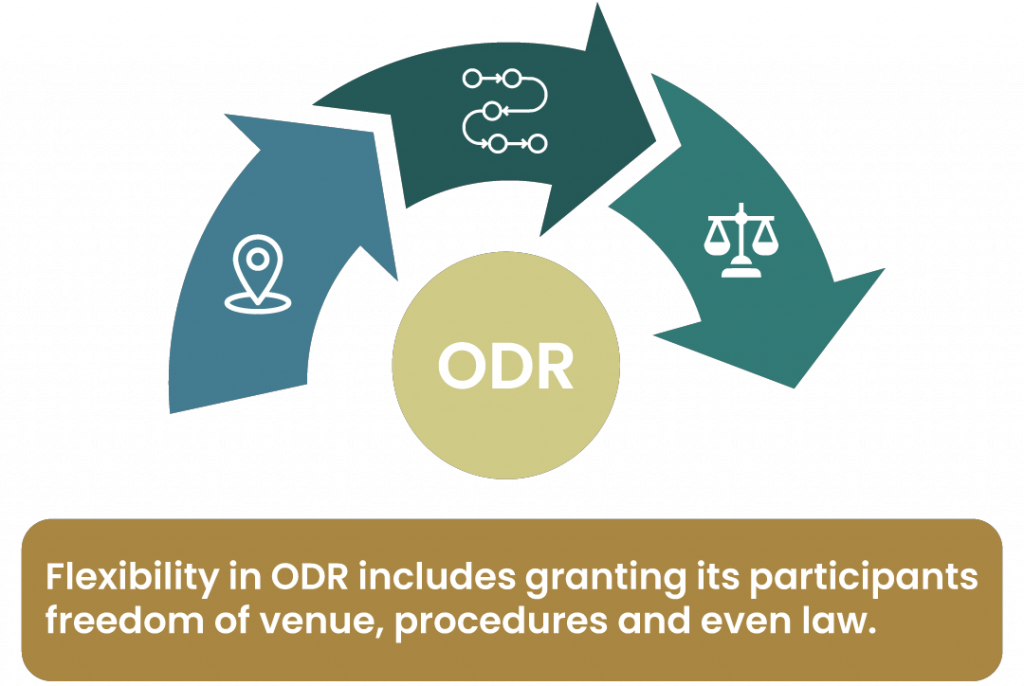
The flexibility of Alternative Dispute Resolution (ADR) proceedings is demonstrated by the exceptional circumstances surrounding the Icelandic volcanic eruptions of 2010. During this time, arbitral hearings were held on a bus that travelled between cities in Europe, collecting witnesses. This unique example highlights the adaptability of arbitration and its ability to be modified to accommodate even the most unusual circumstances.
This innovative approach to resolving disputes through ADR not only showcased the exceptional flexibility of the process but also facilitated the timely disposal of the case. The utilization of this method prevented the consumption of additional time and resources that would have been required if this flexibility was absent.
Furthermore, owing to the fact that the demeanour expected from the participants in ODR or even ADR is not as formal as it is in courts, parties are given much more time and leeway to make their arguments, which ensures more clarity to the arbitrator or mediator, as the case may be, and the overall environment is much less intimidating than a courtroom. Combined with the confidentiality that is provided in every online dispute resolution process, parties can fully disclose even confidential information or trade secrets to provide a clearer picture of the dispute without worrying about the repercussions of the information being disclosed to the public.
These benefits combined make ODR a suitable method for the upcoming times, to address environmental concerns as well as convenience of the stakeholders involved. To make more environmentally conscious choices in our everyday lives, ODR is a better-suited alternative than any physical mode of dispute resolution.

